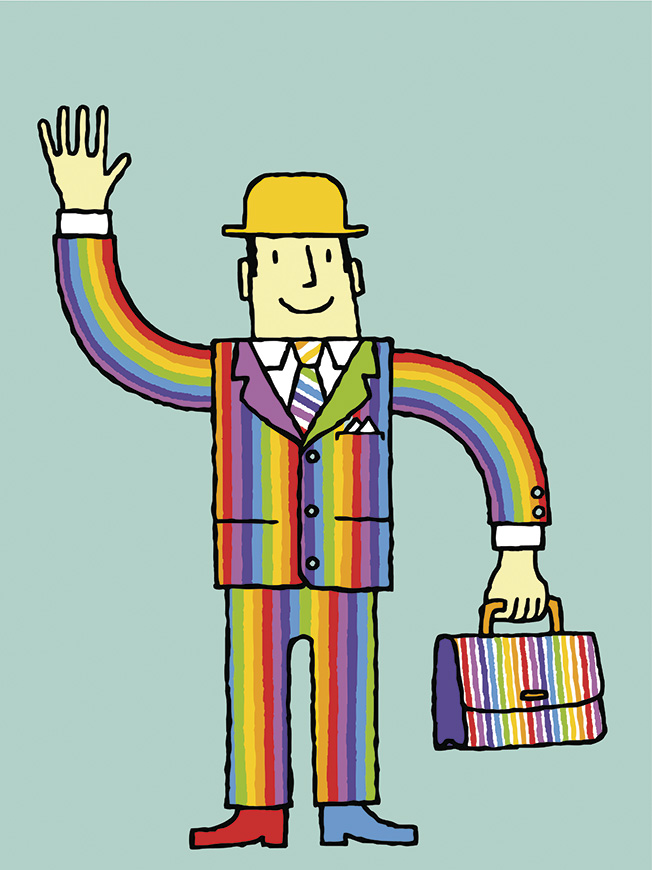Inspiration meets innovation at Brandweek, the ultimate marketing experience. Join industry luminaries, rising talent and strategic experts in Phoenix, Arizona this September 23–26 to assess challenges, develop solutions and create new pathways for growth. Register early to save.
In the late 1960s, arguably the heyday of our industry, advertising icon David Ogilvy wrote a five-point memo to his office managers worldwide, noting "the characteristics which suggest to [him] that a person has the potential for rapid promotion." They were: The person is ambitious. The person works harder than their peers—and enjoys it. The person has a brilliant brain—inventive and unorthodox. The person has an engaging personality. The person demonstrates respect for the creative function.

Max Lenderman
These tenets are as true today as they were in 1968. But, it's time to update Ogilvy's list. So, I humbly suggest we add one more: The person is confidently peculiar.
Maybe it's because Jan. 10 was Peculiar People Day that I have this thought in my head. As my friend pointed out to me, the day celebrates "the unordinary, extraordinary, strange, odd, intriguing, different and quirky people among us." It is a day that asks people to look for the good in peculiar acquaintances. If you are peculiar, Jan. 10 was your "official" day of recognition. It's the day we extraordinary and intriguing wannabes celebrate you in all your glory.
But we shouldn't just embrace you on this one, pseudo-official holiday. After all, what would this industry be without the eccentric and quirky? Not nearly as interesting, creative and fun, to say the least. Not the drivers of innovation. Not the creators of category disrupters or Cannes-winning campaigns.
If you are at an agency right now reading this, look around. How many of your cohorts are kind of odd? Who among them are bona fide unconventional? Who takes being quirky with utmost pride? I think these are the characters that make working in this industry feel so good. I know I like to surround myself with unique thinkers who question and think differently. People who not only are not afraid to march to their own drummer, but consider their differences a career accoutrement. Like Apple founder Steve Jobs opined, "The people who are crazy enough to think they can change the world are the ones who do."
The agency where I work has a well-known internship program. Every four months, we bring in a new crop of eight to 10 fresh-faced creatives, designers, strategists and developers eager to follow every single one of Ogilvy's points. They come in the de rigueur uniform of the ad worker: Williamsburg hip, New York chic, Austin honky-tonk, Coachella hippie or L.A. everyday. But a few are clearly outside the norm. Some are even outside the outside of the norm. And while all are individualistic and unique, these few embrace their quirks endearingly and enthusiastically. So much so that those around them follow suit. And that's a great thing.
Whereas we expect our agency's collective thinking to be "inventive and unorthodox," it's when we get a little crazy that great things get done. It's practically axiomatic that people's diverse points of view, backgrounds, cultures and interests are instrumental to creating original work. But sometimes that work needs to be influenced by peculiarity as well. The interns at School are in their mid-20s. Some are in their early 30s. We've had a 40-year-old intern. He's now a creative director here. All of them are primed for the future of our industry. And, all of them appreciate the power of the peculiar to drive the idea. It's not a matter of being strange or goofy; being peculiar means looking at the world in an unabashedly individualistic way and celebrating it by sharing that viewpoint with others.
An important qualifier for this is the "confident" part in confidently peculiar. These personalities are able to make their peculiarity work for them, thereby allowing themselves different ways to express it. Without that sense of security in their weirdness, these personalities would otherwise hide or obfuscate their iconoclasm. But given the chance and space to embrace and even enhance their oddity, these characters are able to inject it into any particular creative pursuit of their choosing.
Moreover, confidently peculiar people are authentic, and that particular aspect is a requirement to ideas that catch fire in culture. This authenticity is endearing. And it's often infectious. The quirky folks make our teams better, more trusting of "weird" ideas and more open to breaking some rules.
So here's to the peculiar ones. The oddballs. The wacky and weird. Here's to them for making us more creative, more open to discomfort and more attuned to the possibility of breakthrough. If you have one or two or three of those on your team, keep them busy. If you don't, go out and find yourself a couple of confidently peculiar characters and put them on the path to rapid promotion. Ogilvy would concur, and your clients will, too.
Max Lenderman (@maxlenderman on Twitter) is CEO of School, a Project: WorldWide agency that helps brands act purposefully in culture.
This story first appeared in the Jan. 18 issue of Adweek magazine. Click here to subscribe.








